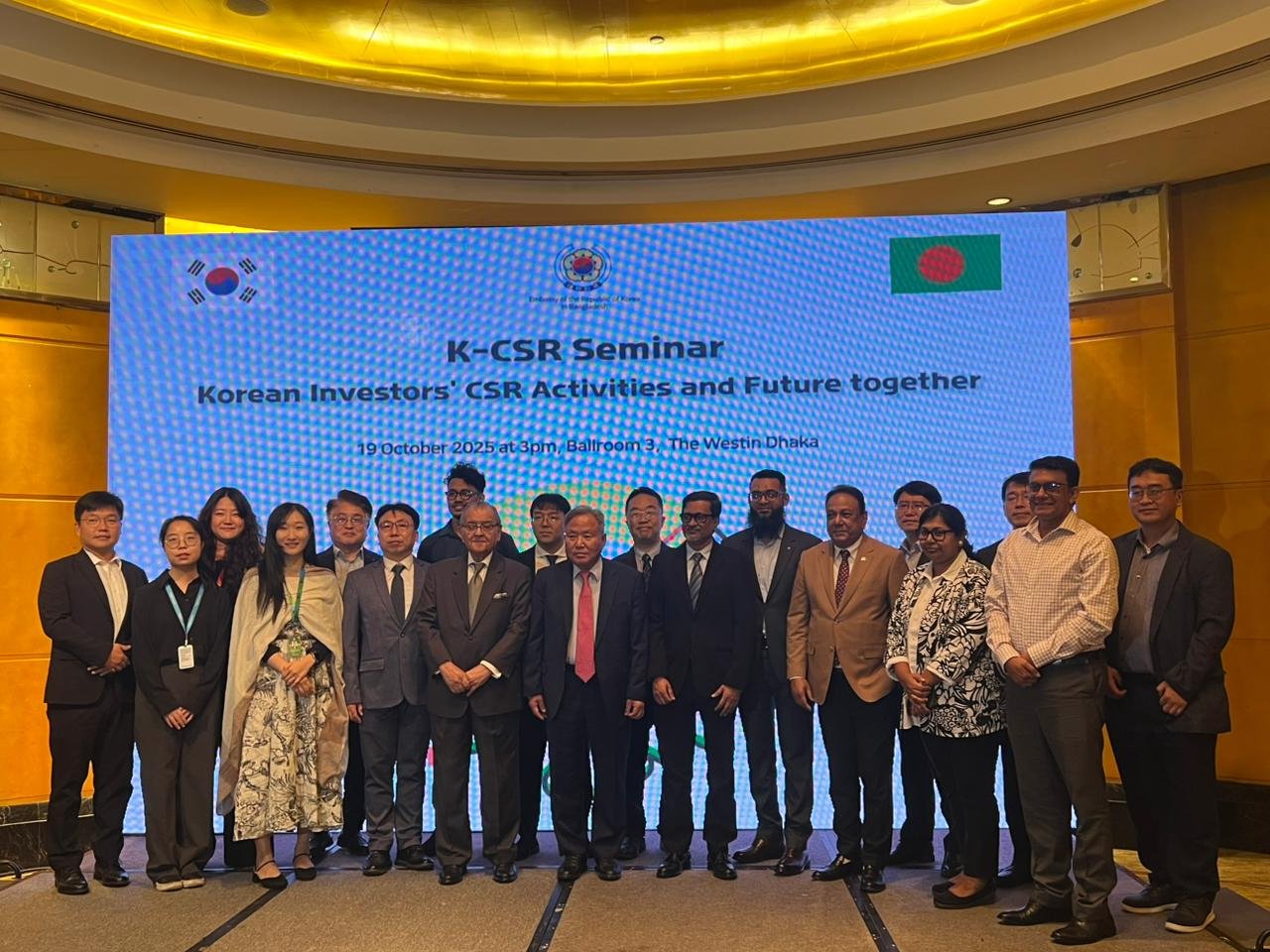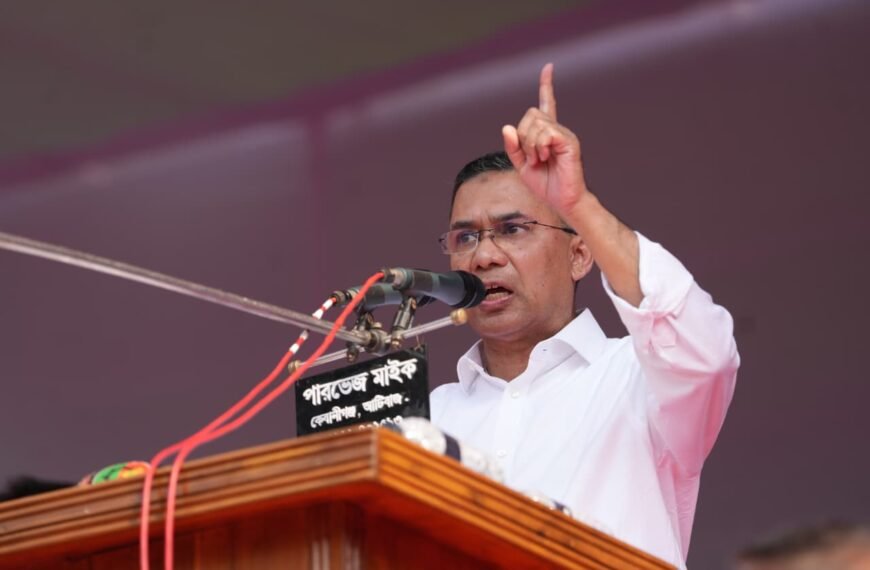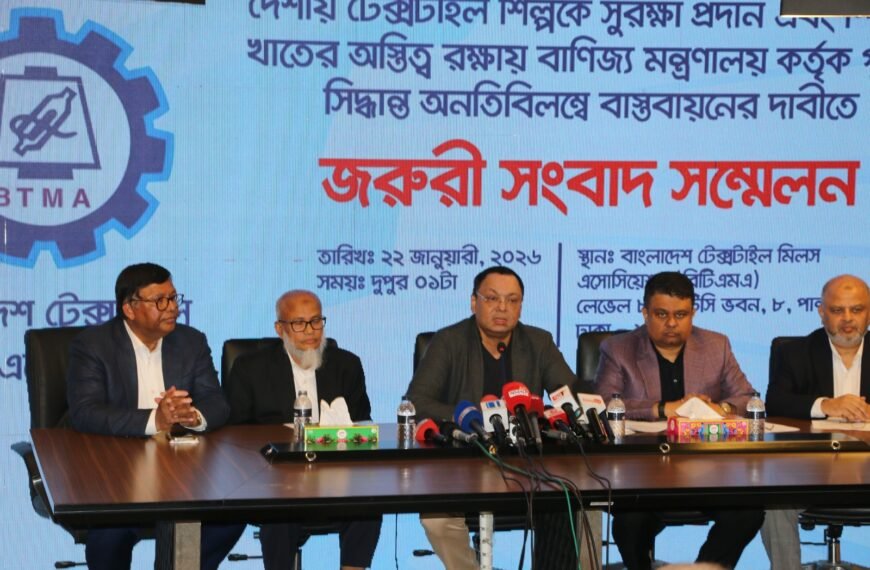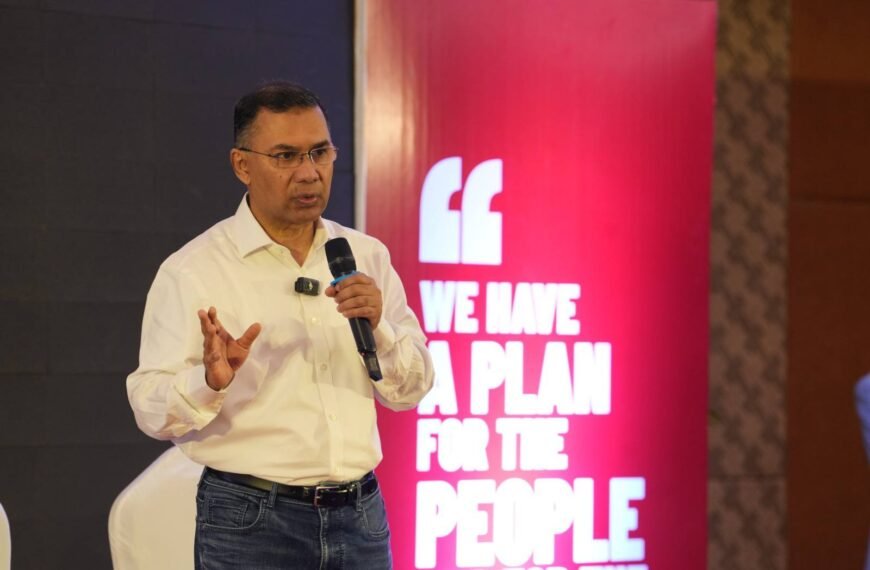The Embassy of the Republic of Korea in Bangladesh successfully organized a seminar titled “Korean Investors’ CSR Activities and Future Together” on Sunday, October 19, 2025, bringing together Korean companies, NGOs, business leaders, and development experts. The event highlighted the vital role of Corporate Social Responsibility (CSR) in fostering sustainable development and strengthening the Korea-Bangladesh partnership.
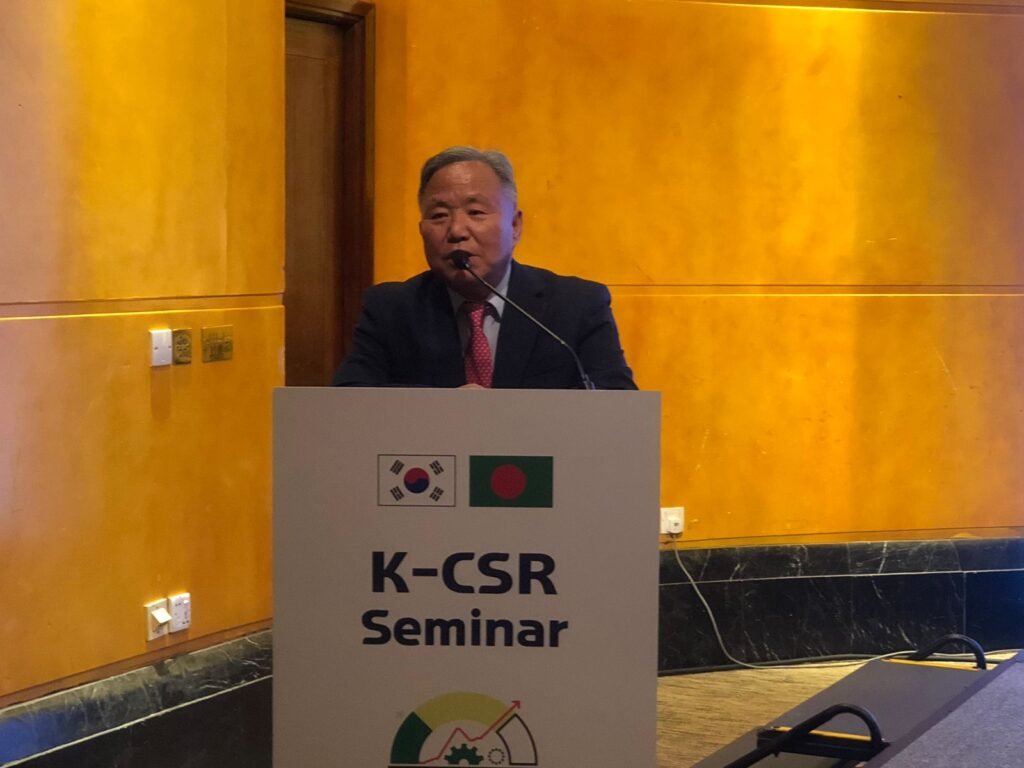
In his welcome remarks, H.E. Mr. Park Young-sik, Ambassador of the Republic of Korea to Bangladesh, emphasized the growing significance of CSR as a driver of inclusive growth, social welfare, and responsible investment. He reaffirmed Korea’s commitment to supporting Bangladesh’s sustainable development goals through continued collaboration in CSR. Ambassador Park reflected on the long-standing economic partnership between the two countries, recalling the pioneering cooperation between Desh Garment and Daewoo Corporation in 1979 that helped establish Bangladesh’s ready-made garment (RMG) industry. He noted that Korean companies have since contributed greatly to industrial and infrastructure growth, participating in 257 projects worth USD 8.82 billion as of April 2025.
Highlighting various CSR examples, Ambassador Park mentioned LG Electronics’ Ambassador Challenge and IT Academy with JAAGO Foundation, Samsung R&D Institute’s youth and ICT training programs, Woori Bank’s initiatives in education and healthcare, Dohwa Engineering’s industrial training for IUT students, and Youngone Corporation’s eco-friendly industrial model in the Korean Export Processing Zone (KEPZ) in Chattogram. He praised Youngone’s Blue & Green Initiative, which transformed barren land into a thriving green ecosystem with three million trees and a 37-megawatt rooftop solar project, alongside major community welfare initiatives in health and education.
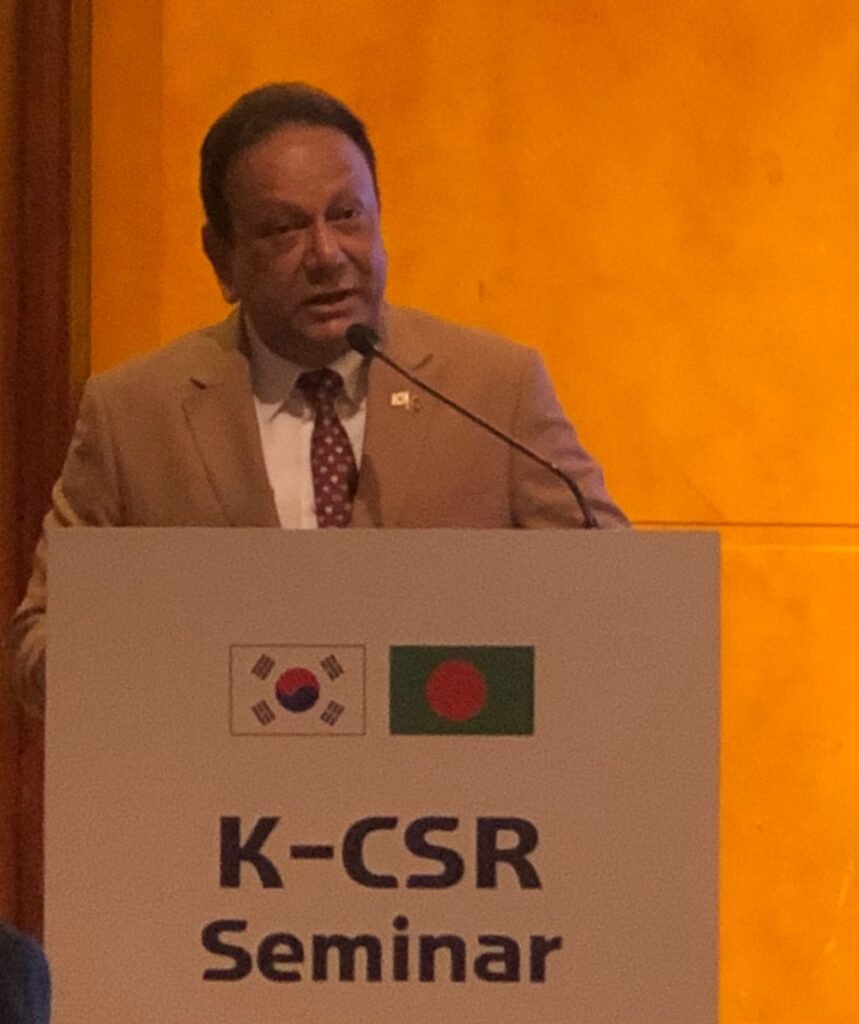
Mr. Shahab Uddin Khan, President of the Korea-Bangladesh Chamber of Commerce and Industry (KBCCI), in his congratulatory remarks, commended Korean companies for their sincere commitment to people and communities through CSR. He said CSR has become “a bridge of friendship between Korea and Bangladesh,” citing examples from Samsung, Youngone, Hyundai, and others that have undertaken projects supporting education, youth training, healthcare, and environmental protection. He also appreciated the efforts of KOICA and other Korean organizations for complementing corporate initiatives and ensuring long-term impact.
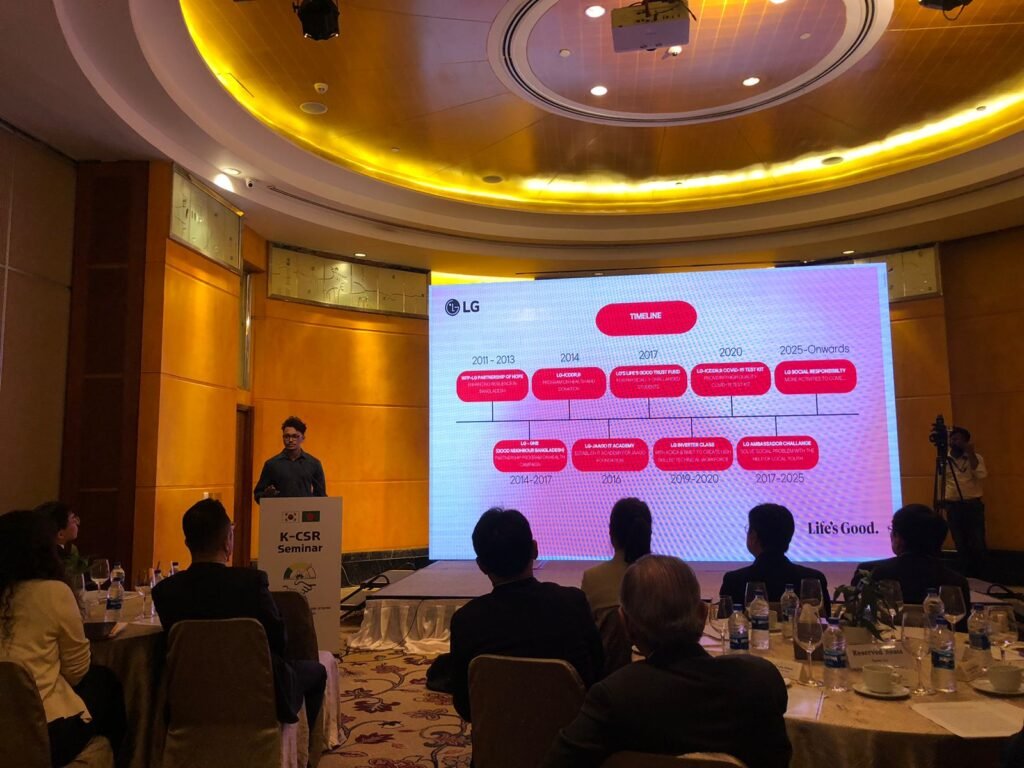
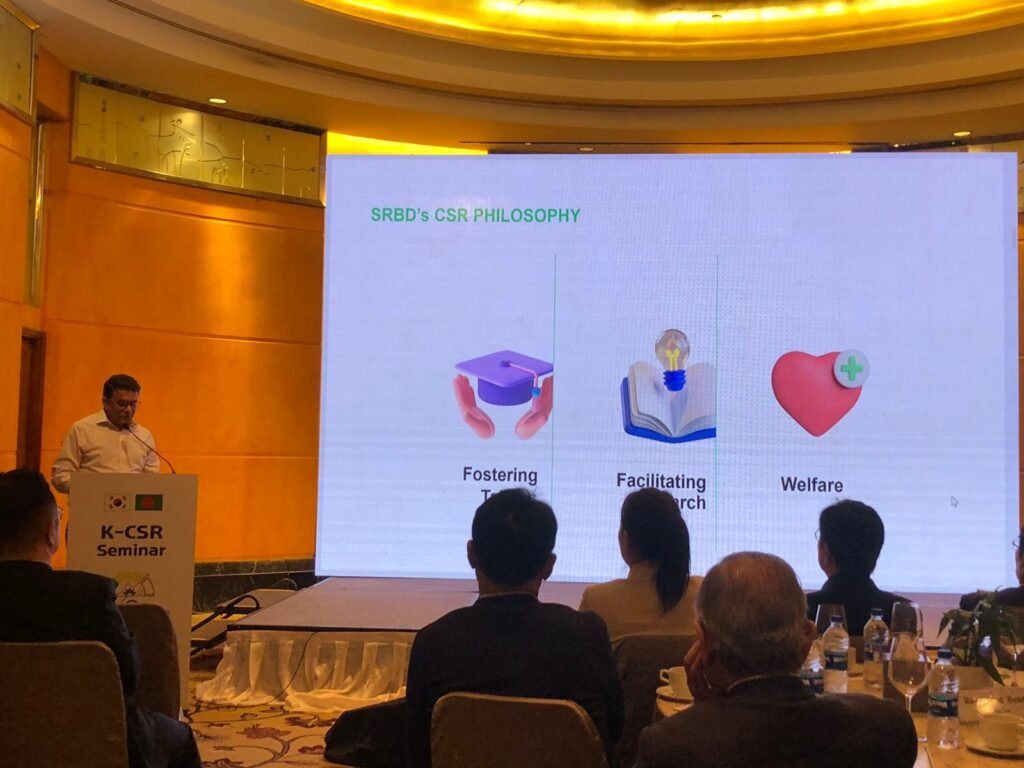
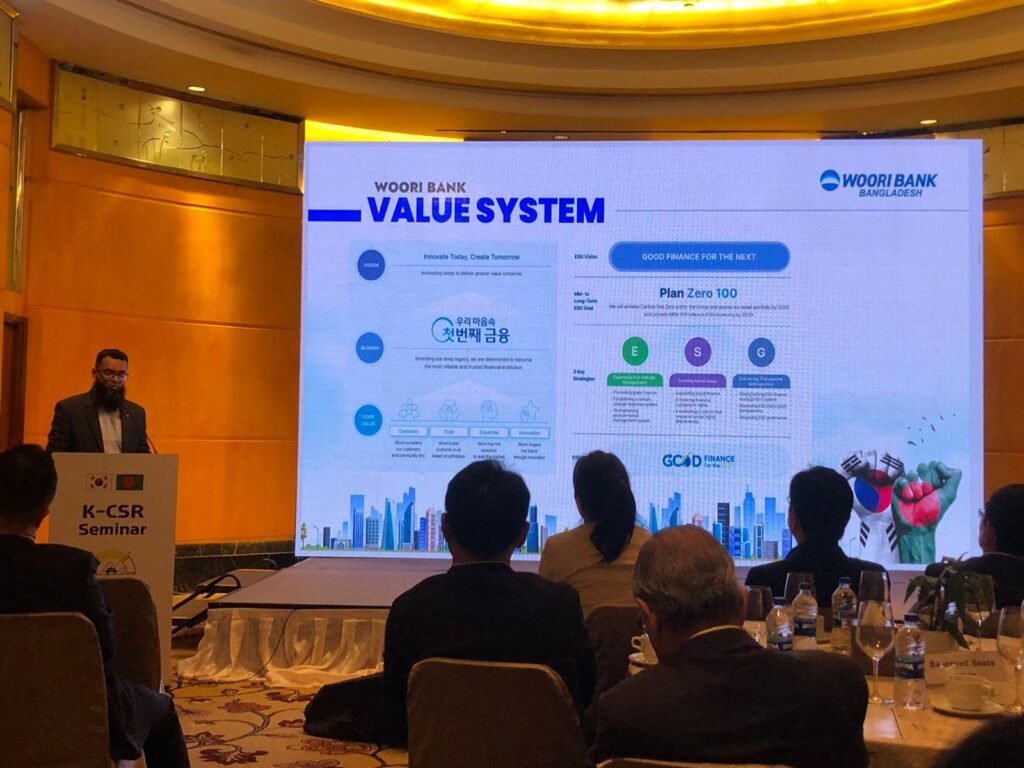
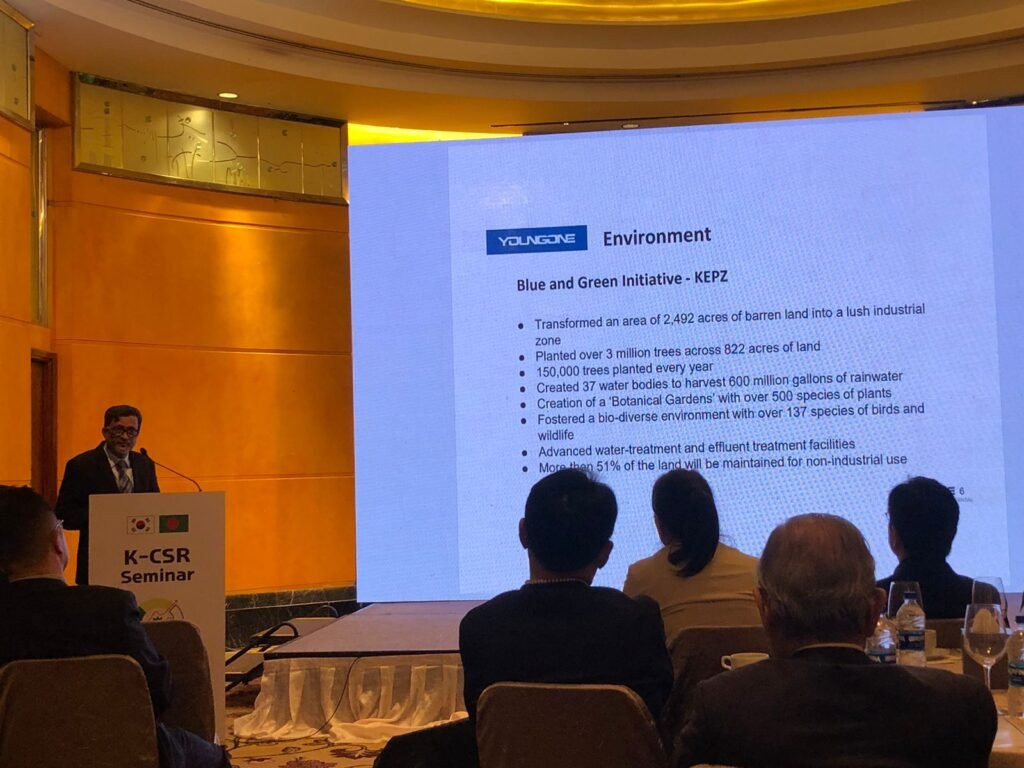
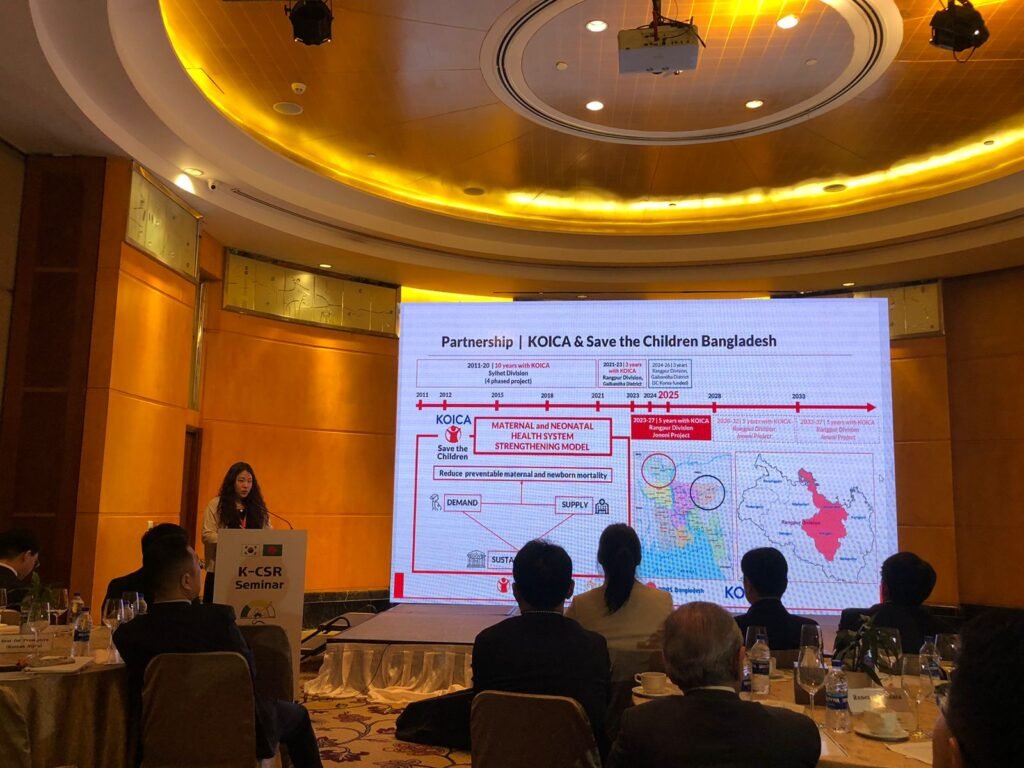
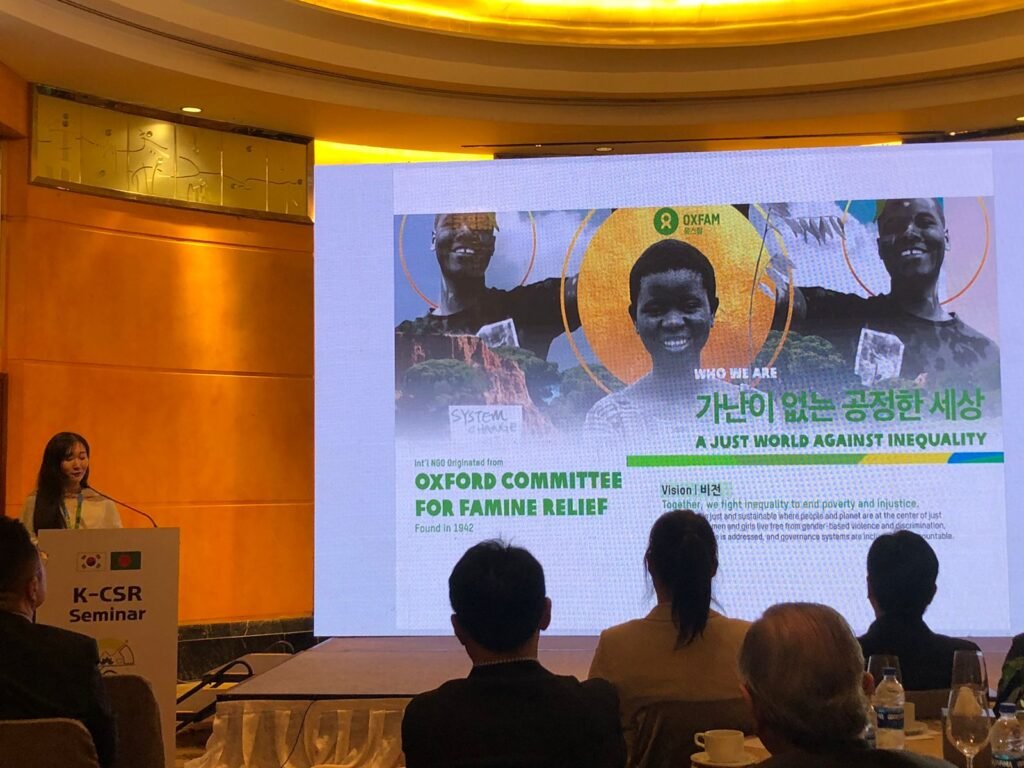
The seminar featured presentations from representatives of LG Electronics, Samsung R&D Institute Bangladesh, Woori Bank, Dohwa Engineering, and Youngone Corporation, showcasing diverse CSR programs in education, community health, environmental protection, and skills development. Representatives from major Korean NGOs—Save the Children Korea, Oxfam Korea, Habitat Korea, Good Neighbors, ADRA Korea, and Global Care—also shared their ongoing projects aimed at improving livelihoods and social welfare in Bangladesh.
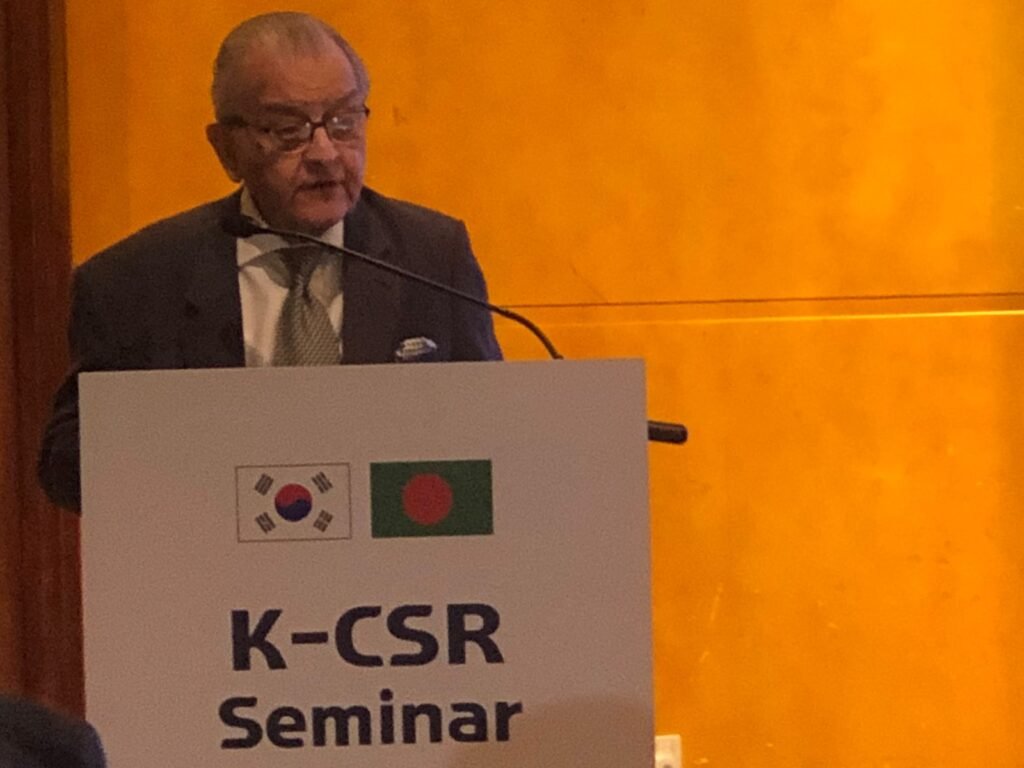
Ambassador Farooq Sobhan, Chairman of the CSR Centre and former Foreign Secretary, delivered a keynote address on “The Importance of CSR in Building Constructive Business Relationships.” Reflecting on his long association with Korea and CSR, he underscored that CSR is not charity but a strategic approach to achieving long-term profitability and reputation. “Profit, reputation, and community are all integrated,” he said, adding that responsible business practices contribute to both corporate success and national image. He emphasized that the Sustainable Development Goals (SDGs) have now become an essential part of CSR and that embedding CSR in business models strengthens trust, loyalty, and resilience.
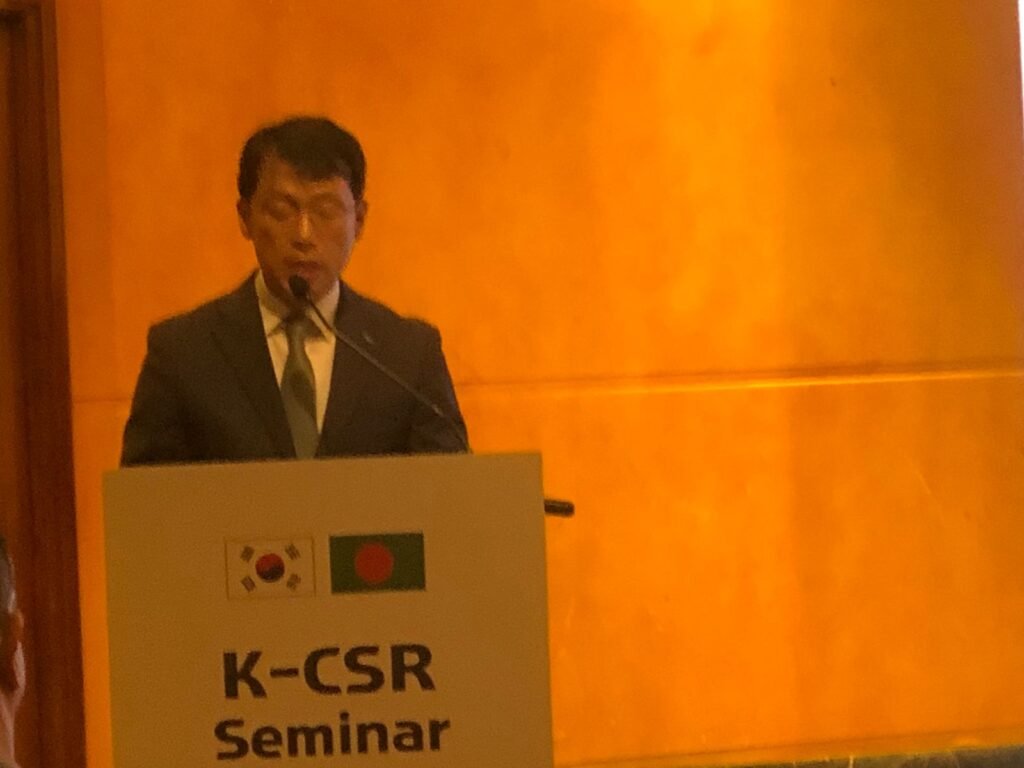
The event concluded with a vote of thanks by Mr. Jihoon Kim, Country Director of KOICA, who reiterated Korea’s ongoing commitment to people-centered development and sustainable partnerships.
He said, “Here in Bangladesh, we heard inspiring case studies from Korean investors. Their presentations moved beyond simple philanthropy, showcasing strategic CSR efforts that are deeply integrated into the welfare of Bangladeshi communities. From skills training and environmental sustainability to access to healthcare and education — this is corporate responsibility that creates shared value.”
He added that the dedication of Korean and NGO partners, often working in the hardest-to-reach areas, demonstrates that Korean empathy knows no borders. These efforts complement KOICA’s ODA programs, creating collective impact — such as when vocational training centers built by KOICA are paired with job placements or specialized equipment provided by Korean companies, or when national health initiatives are supported with grassroots education by NGOs.
Mr. Kim emphasized the importance of fostering more public-private partnerships and ensuring development efforts are complementary. He noted that CSR and NGO activities contribute directly to the Sustainable Development Goals, including no poverty, quality education, safe water and sanitation, and decent work and economic growth. These initiatives also align with Bangladesh’s national vision of becoming a developed country by 2041, emphasizing investment in human capital, sustainable practices, and community resilience.
He concluded by urging participants to leave the seminar not only inspired but energized to take action, deepen collaboration, share best practices, and explore innovative ways to pool resources for even greater community benefit.
Through this seminar, the Embassy of the Republic of Korea reaffirmed its dedication to promoting responsible business practices, inclusive development, and a stronger, enduring partnership between Korean investors and the people of Bangladesh.

